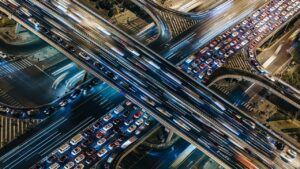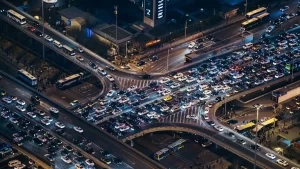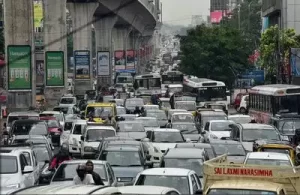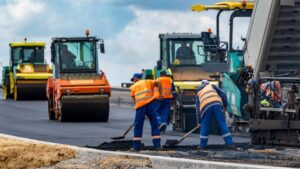
The City is looking at the use of Artificial Intelligence to battle terrible traffic congestion in Toronto.
The City is considering the use of Artificial Intelligence (AI) and other technology to tackle frustrating traffic congestion issues in Toronto.
A City Traffic Congestion Management Plan (CMP) said AI can be used for coordinating traffic signals, detect motorists making illegal stops and a host other uses.
The City said it will cost $1 million daily to Toronto’s economy when the Gardiner Expressway is reduced to two lanes in each direction between Dufferin Street and Strachan Avenue from March to December due to road repairs.

It will cost the City $1 million daily in lost revenue when the Gardiner Expressway is reduced to two lanes in each direction this year.
The loss comes from motorists staying away or using other roadways when the Expressway is reduced.
Officials said based on computer simulation it costs an average road user $20 an hour to use a major street.
A Transportation Services Committee said AI can be used to detect parking in intersections and other illegal parking, including stopping or parking in bike lanes. The technology can also be used to monitor traffic lights and movement patterns.
“It will require to test the technologies so it does not negatively impact traffic,” according to the Committee.

Traffic red light cameras are proposed for use to detect motorists parked in intersections and no stopping zones, including bike lanes.
The CMP was presented at the Infrastructure and Environment Committee last year and then to a Council meeting last November. It is under study.
To battle traffic congestion the committee is looking at having major construction on roads or highways conducted overnight from 11 p.m. to 7 a.m., to lessen inner-city noise and for deliveries to take place off peak during early hours or late at night.
The measures were conducted during the 2015 Pan Am Games and there are plans to repeat them for the upcoming FIFA World Cup Soccer in 2026.
To curb traffic congestion the City is also looking at road construction work being done overnight and off peak times for deliveries.
The City has established a Transportation Innovation Zone (TIZ) for the testing of transportation and other technologies in a real-world environment at Exhibition Place. The zone has been working on measures as a moving, self-cleaning sidewalk or QR codes on talking signs at construction zones for those with visual challenges.
“Envisioned is an application that is GPS-based, developed for the blind, deafblind and partially sighted that will voice construction work zone details once the user is in relative proximity to the work zone,” according to the CMP.

Major road work will be conducted faster allowing motorists to use highways during daytime working hours.
Information on the construction signs would include the contractor’s name, duration of the project and wayfinding details if there is a need to divert traffic, pedestrians or cyclists.
Also proposed are traffic red light cameras being used to detect motorists stopped in intersections, no standing or stopping zones, for which fines would increase from $90 to $450 and $500.
The City also wants construction companies to pay more for blocking lanes of traffic or sidewalks during their builds.
“After a major complete street design project is installed, Transportation Services will publish data on completion and feedback from the public for residents and other stakeholders, including emergency services,” the Committee was told.
City officials said they plan to increase construction efficiency while mitigating congestion and inconvenience to the public.
